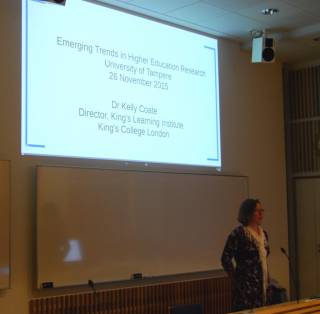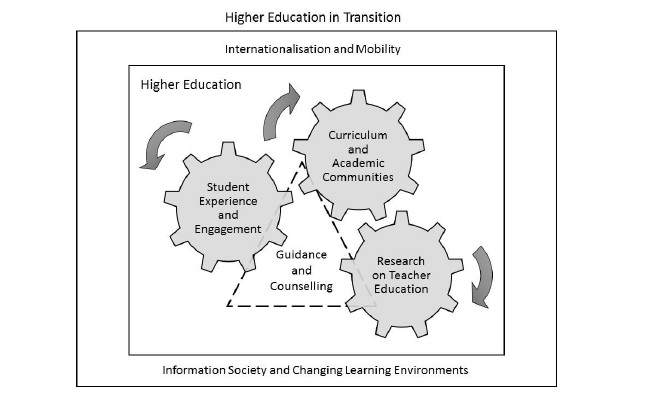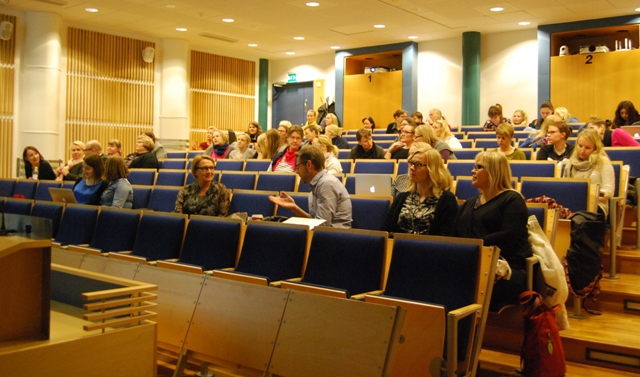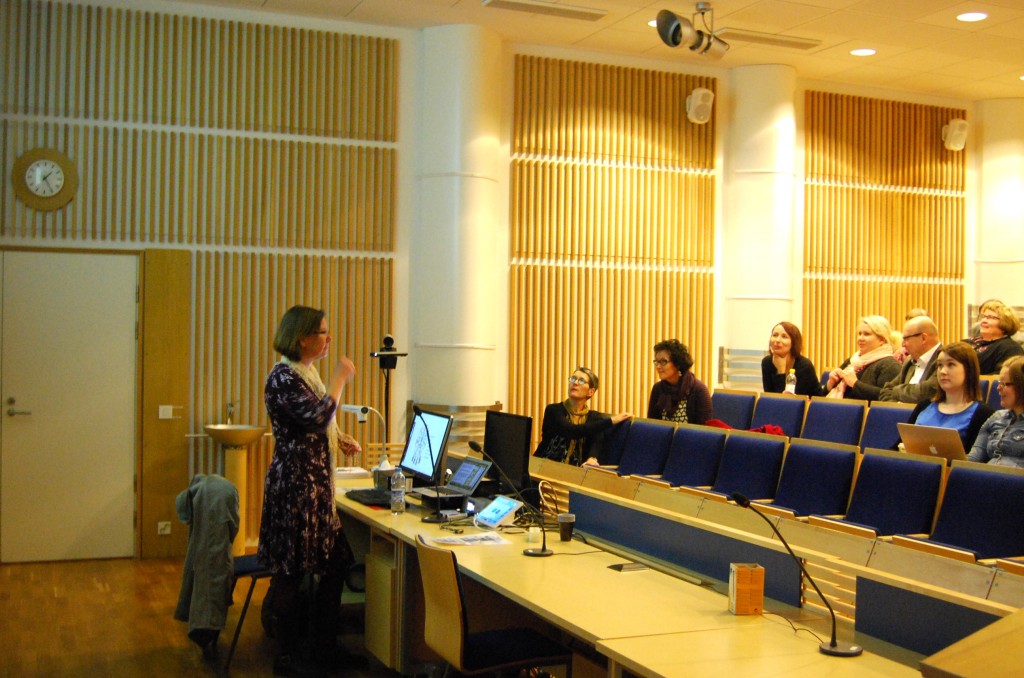HET research group organised a seminar called Emerging trends in higher education research at the end of November. The keynote speaker of the seminar was Dr. Kelly Coate from King’s College London. Coate works as a Director (Accredited Programmes) at the King’s Learning Institute, King’s College London. She is also a member of the Society for Research into Higher Education (SRHE) Governing Council and co-convenor of SRHE’s Digital University Network. Since Coate has a vantage point in HE world, the members of the HET group were eager to hear about her thoughts of emerging trends in HE.

According to Coate, the three emerging trends, or seductive discourses as Coate called them, are technology, student engagement, and globalisation. Although there are others too, she added, but those three are some of the big ones, that continually get discussed in new ways. “For instance technologies,” Coate says, “There’s a lot of people who are practitioner-oriented and want to just promote better technological views. But then there are a whole bunch of really interesting people, who are theorising, in really interesting ways, the kind of interplay between the material and the digital. And there’s a lot of really interesting theoretical work on digital literacies, for example. So sometimes these worlds come together. And I just had a colleague joining us in the digital university network. He has been doing really interesting work on how students make sense of the curriculum through Google. And so, he calls it ‘learning by Google algorithm’. Because learning very much depends on the search terms. So all those kinds of practices, that’s just one small example.”
Along with the technologies the student experience and engagement is another theme that’s really active at the SRHE. A major strand with the work Coate and her colleagues are doing at the King’s is on the inclusive education. According to Coate, people have been talking about inclusive learning and teaching, and inclusive education for a while, but it seems like just now people are starting to understand institutionally how they might approach it. So at the King’s College they are making a big push on inclusive education now, because they are focusing on student experience a lot more. Instead of seeing students as consumers, they should be seen as partners, co-workers and co-producers, Coate states.
Even though Coate names globalisation as one of the trends in HE research, she points out that world without boundaries is too far-fetched in reality – for example, UK is making it harder to get a visa for studying, which constrains the student mobility.
The three trends are also listed as some of the main research themes of the HET research group (see picture below). In addition to the three, Coate thinks that especially research on teacher education “is huge and doesn’t come in so much” at the higher education research networks that she’s in.

Nevertheless, Coate adds, “For every single kind of aspect of higher education I could point to and say ‘People are now looking at this’. There would be a whole bunch of perspectives of how people are looking at this. And that’s really good. But it can make the field feel a fragmented. It’s just really difficult to categorise and tidy up this messy and complex field that we are in. The field has developed to be fragmented in all these really interesting avenues. And when you hear researchers tell about their work, you can see the richness of, and the potential of all the different avenues you can take.”

The concluding thought of Coate’s speech was that universities need to be contributing the society, not the economy. During her speech Coate reminded that HE researchers are producing discourses and that research can and should change policies – but the question is, how to do that. There is a disconnect between research and academic practice, let alone between research and policies on a wider scale. “We might research and write about lots of things, that doesn’t filter into practice,” Coate said and added, “But there are these times when you actually find the diverse group of people in the room talking to each other, and could say ‘Look, something might happen’.”
Written by Telma Rivinoja

